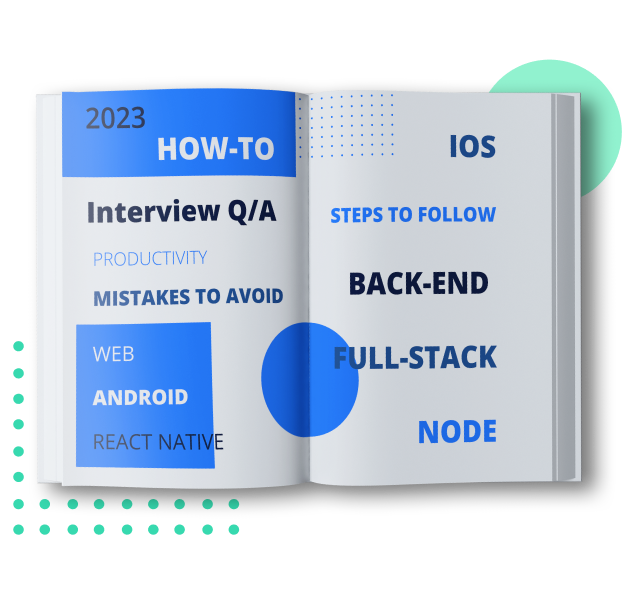Within our series of articles devoted to “How to Hire Software Developers,” we covered all hiring aspects. This article will focus on types of employment as this factor determines the time and financial costs, risks, working process, and search channels.
The goal of this post is to help you find the most appropriate employment type, therefore we will analyze them, list their pros and cons, and define the most appropriate context for this or that type.
InHouse developer
An in-house developer is a full-time software developer working for your company. This person is on your company’s staff, works in the office, goes on vacation, and enjoys cookies in the kitchen.

This employment form has its advantages and disadvantages.
PROS
Face-to-face communication
Research by Albert Mehrabian, the Professor Emeritus of Psychology at the University of California, Los Angeles, states that as much as 55% of communication consists of body language, 38% of a message is delivered with the tone of voice, and only 7% with the words you use.
Every year advances in technologies diminish the difference between face-to-face and remote communication. However, in-person communication remains the most effective way. Simpler and faster information exchange, making decisions, and setting goals are just a few advantages of face-to-face communication.
Ultimate project immersion
As a rule, a person working in the office with the rest of the team is more involved in the working process, better understands the project objectives, and gets deeper into the company culture. Employees’ loyalty and motivation increase as a result.
Complete working process control
Controlling the working process is much easier when all the team is at hand. You can observe workers and see how they communicate inside the team. You work simultaneously, which makes it easier to schedule meetings, set milestones, and make corrections.
Developers can share their knowledge and educate each other
Raising and training an employee is another great opportunity to have an in-house team. Being part of a team means that a person learns from teammates and can get feedback quickly. It is quite a feasible option to hire a junior and make a savvy senior when this person is an in-house developer.
CONS
High costs
Salary is not the only expense of having a full-time staff member. You also need to consider a paid vacation, seek leaves, insurance, taxes, workstation, and other costs to create the required working conditions.
The compensation rate in your region can be much higher compared to other locations. Learn more about factors forming costs to hire a developer in our article How Much Does It Cost to Hire an App Developer in 2024.
Time-consuming employment process
Employing an in-house developer is not such a quick process as it may seem at first glance. Creating and posting a vacancy, interviewing and sieving candidates, repeated interviews, hiring the best candidate, and project onboarding are the main time-consuming steps generally taking from 1.5 to 3 months to finalize the process.
You are lucky if everything goes smoothly, and you don’t have to run the process repeatedly. There is a risk that a hired developer might not get adopted, appear to be less professional than expected, or an appropriate candidate might not be found at all.
It makes the instantaneous scaling of an in-house development team a pretty complicated and time-consuming process.
Limited choice
Planning to hire a new staff member in most cases means choosing from the local labor market. It significantly limits choice and is conditioned by two factors: demography and competition.
- Demography. Choosing among candidates of your city, state, or country, the choice is originally reduced.
- Competition. The presence of huge corporations in any region complicates the contest for good specialists.
These factors hurt the chances of finding a really good and appropriate specialist.
Best match
Freelance developer
These software developers are self-employed and work without intermediaries. They can be found on freelance platforms or by referral. In certain cases, it can be an optimal solution. Let’s dig deeper into it.
PROS
Low costs
The costs are less not just because rates of freelancers are lower but because associated costs including employment costs, taxes, workstation maintenance, etc. are avoided.
For instance, a program automatically creating a card with potential customer information should be created. To do this data from the mailbox should be transferred to the system. The scope of work can be accomplished within several weeks. Once set doesn’t require further support.
Is this task worth employing a full-time developer? Most likely not as not financially reasonable for one-off jobs. Even if hour rates are higher compared to a full-time employee, the total cost will be less due to the economy on hiring and firing procedures.
Plenty of professionals to choose from
Freelance platforms offer specialists for any job, even the most specific. A great variety of candidates enables choosing the best match.
CONS
Poor quality
Freelancers can work without any proof of their skills and often work on several projects at a time. They seldom take any legal or financial responsibility for their work, leading to low-quality work.
High risks
As mentioned above, freelancers are seldom held accountable and can disappear if something goes wrong. Since there is no way to control their work, missed deadlines are a common thing that makes hiring a freelancer very risky for a project.
Long hiring process
It is quite difficult to find a responsible and skillful developer, and it sometimes takes a longer time than finding an appropriate candidate in the local labor market.
Best match
Dedicated developer
Dedicated Developer – a developer or a team of software developers lent by a third-party company. This person works for your project 40 hours a week just like an InHouse Developer, officially being an employee of a provider company though.
In exchange, you compensate the provider for the development costs.
PROS
Fast hiring
Hiring a dedicated developer can take as short as a couple of days. There is no need to pass all the hiring process steps, as software developers have already been assessed and verified. You should find the best match and sign an agreement.
Flexibility
The nature of this approach enables fast team scalability with required specialists. Scaling back is also an easy task.
A high degree of control
A developer works only for you 8 hours a day 5 days a week. You assign tasks, you control the results, and you make corrections during the development process. Practically this is your full-time employee.
Guarantees
Agreement with the provider ensures responsibility for the quality of work performed by a developer. When a developer doesn’t fulfill obligations and is unable to continue work the provider finds a substitute or refunds the costs.
Moderate costs
In most cases hiring a dedicated developer is more cost-effective compared to an In-House Developer as there are no associated expenses for hardware, taxes, employee benefits, etc. In some regions, the hourly rate of a developer having a similar skill set can be lower. However, it is more expensive than a freelance developer.
Plenty of professionals to choose from
Similarly to freelance developers, the choice is not limited by a geographical region when looking for a dedicated developer. It increases the chance of finding a more suitable professional.

CONS
Remote work
Under most circumstances, dedicated software developers work remotely which may cause impaired information exchange, discussion of ideas, and making decisions.
Different time zones
Companies can provide software developers from different locations, but sometimes these countries are not from the same time zone. Practical experience speaks in favor of at least a four-hour overlap within working hours to organize remote work efficiently.
Cultural differences
While choosing dedicated developers from different locations, one should realize that a person from another part of the globe can be chosen, which means not only a different time zone but also a different mentality. Sometimes it can become an obstacle to productive work.














